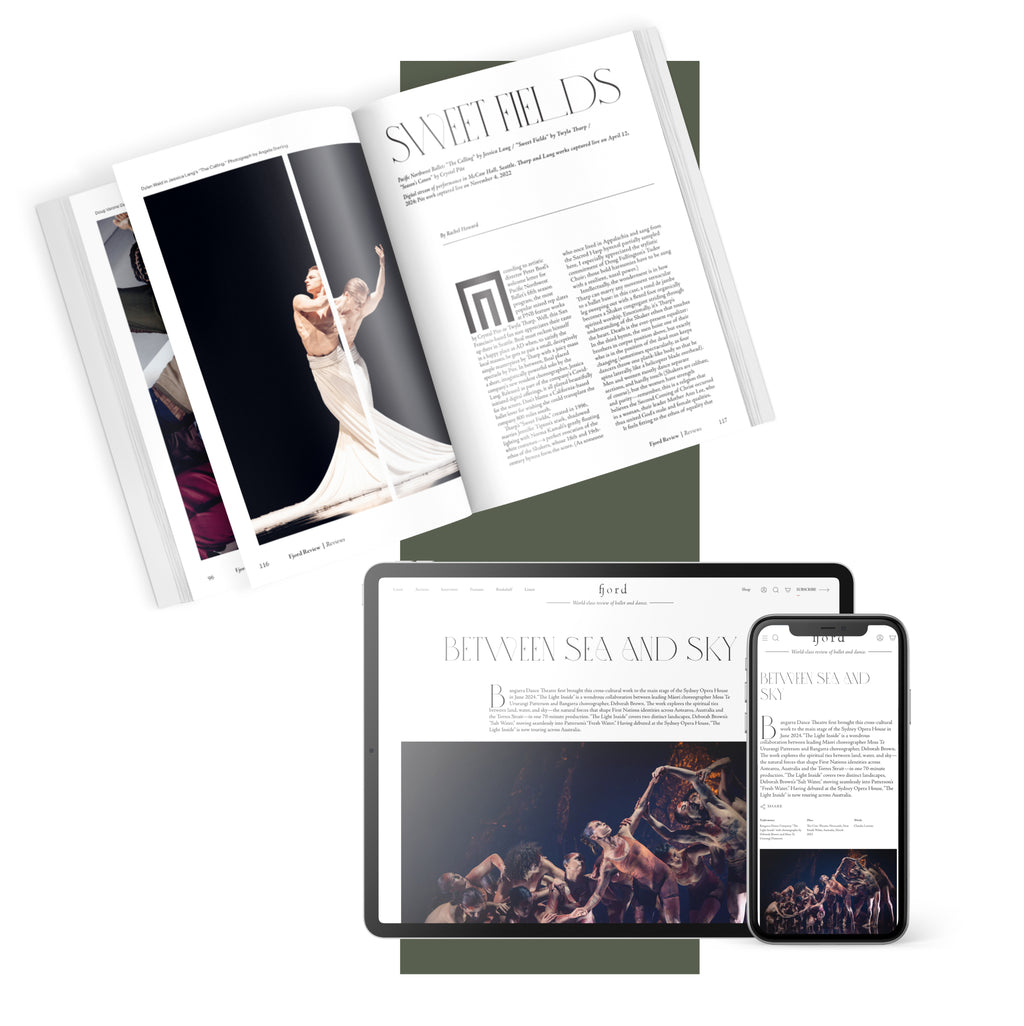Dancing the leading roles of the Russian Girl, the Waltz Girl, and the Dark Angel, were Mayara Magri, Marianela Nuñez, and Claire Calvert, respectively. While the ballet is abstract (the first two dancer’s titles correspond to the Tema Russo and Waltz sections of Tchaikovsky’s score, with the Dark Angel acting as a mysterious interlocutor), each role is distinct. The three women seem to arrive onstage at different points in life: the Russian Girl is youthful, performing spritely allegro steps; the Waltz Girl is a woman, finding her way in the world and making mistakes (she falls down, arrives late to formations); and the Dark Angel is ghost-like, performing choreography as if issuing a warning from beyond the lens of experience and loss.
Magri as the Russian Girl executed the difficult choreography with gusto, relishing in Balanchine’s quick footwork the more challenging it became. Smiling at the audience, she seemed to be toying with our disbelief at her technical prowess: isn’t this fun? Calvert, with her impressive jump and sunny disposition, also performed well, although her interpretation lacked the depth that makes the Dark Angel such a fascinating part. Her dancing was missing any sense of pathos, somewhat muddling the ballet’s emotional resonance and the grief that so clearly lies at the heart of it. One wonders why she was not given a chance at the role of the Russian Girl instead.
Nuñez, as the Waltz Girl, brought her signature star power to the part, although at times to detriment. Her performance, though technically excellent, also did not chart the emotional journey that “Serenade” requires. She entered the ballet as she exited it: smiling, unchanged.
At the end of the Tema Russo section, when the Waltz Girl falls to the floor and undoes her hair (one of “Serenade’s” many nods to “Giselle,” a ballet Balanchine claimed to have hated), Nunez struggled to loosen her pins, tugging at them for what felt like an eternity while standing and staring at the audience. Once on the floor, she then continued to pull at them, almost comically so (apart from this performance, “Serenade” has never been a particularly funny ballet).












comments